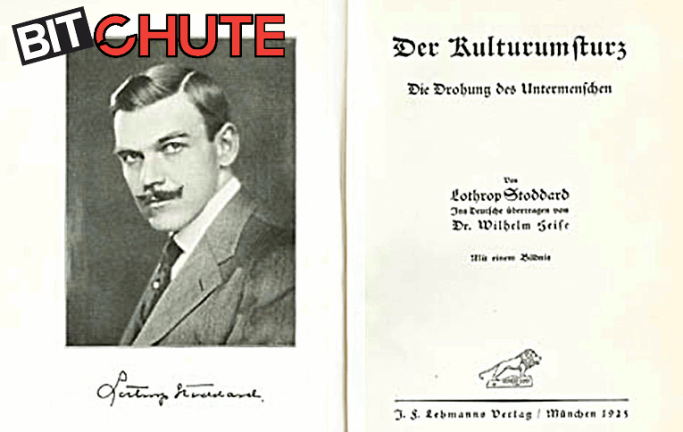Written in the wake of modern mankind’s worst violent cataclysm to date, the Great War, Lothrop Stoddard’s ‘The Rising Tide of Color’ noted the sharp decline of European civilization and the breaking of its dominance over the colored world it had held since the advent of colonialism in the 15th century. Stoddard went on to predict the further deterioration of the white world’s relative standing in the years to come, as the rise of Asia and the utter annihilation wrought upon Europe in the Second World War paved the way for final decolonization and the rise of a new world order that saw white supremacy and even race aware thinking such as Stoddard’s deemed anathema.

The Myth of the 20th Century – Episode 139 – Lothrop Stoddard – The Rising Tide of Color
— References —
– The French Revolution in San Domingo, Stoddard (1914)
– The Passing of The Great Race, Grant (1916)
– The Rising Tide of Color Against White World-Supremacy, Stoddard (1920)
– The Revolt Against Civilization: The Menace of the Under Man, Stoddard (1922)
– The Decline of the West, Spengler (1922)
– The New World of Islam, Stoddard (1922)
– Eugenics – Francis Galton and the Legacy of Social Darwinism, Myth of the 20th Century (2018) – https://myth20c.wordpress.com/2018/05/17/eugenics-francis-galton-and-the-legacy-of-social-darwinism/
When Nick observes that Stoddard misses what American power would do during the White decline, he postulates that it is because Stoddard was an American himself. However, it’s important to note that Spengler also failed to anticipate American power during Western decline, and he held America in contempt rather than pride. Farrenkopf observes this in his biography-cum-geopolitical-treatise Prophet of Decline, though he fails to draw the incredibly apt parallel between Stoddard and Spengler.
I’m not quite finished listening yet, but I’m really interested to know if we can trace any cross-pollination between Spengler and Stoddard. A lot of Spengler scholars have proposed that Spengler is a uniquely German phenomenon, but Stoddard seems to put the lie to that, since he does not share Toynbee’s unjustified optimism but he has none of the German intellectual roots of Spengler’s intellectual formation.
LikeLiked by 1 person